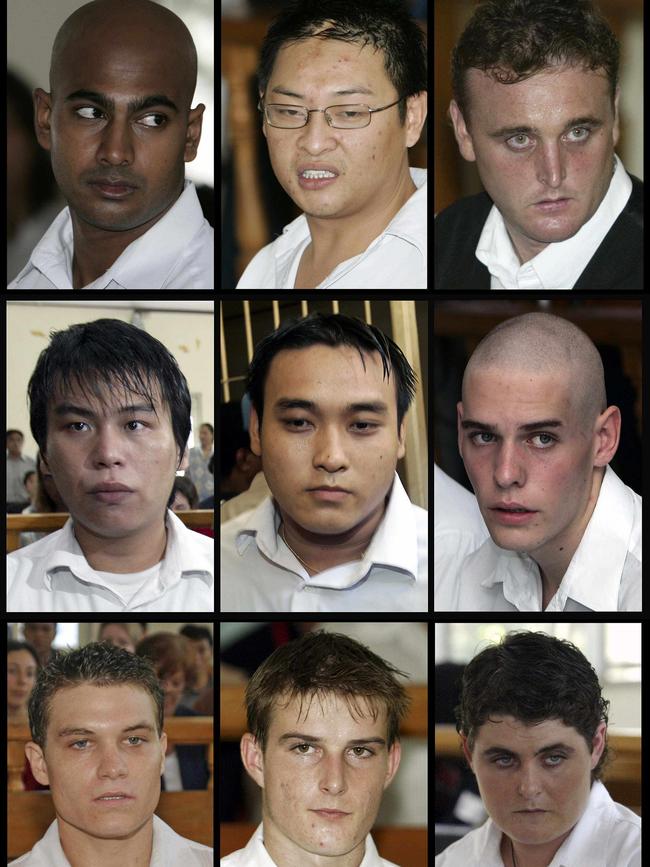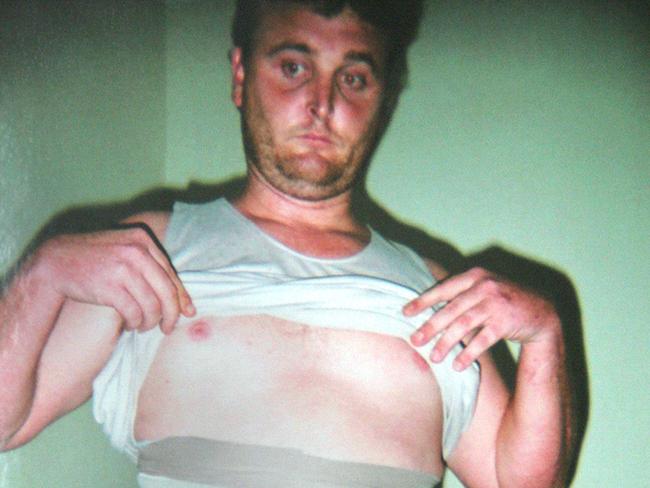Bali Nine’s Aussie return: How it happened
The remaining members of the Bali Nine, who have been incarcerated since 2006, are now free men in Australia. Here is everything you need to know.
National
Don't miss out on the headlines from National. Followed categories will be added to My News.
The remaining members of the Bali Nine, who have been incarcerated since 2006, are now free men in Australia.
Here is everything you need to know.
WHO ARE THE BALI NINE?
The Bali Nine is the moniker given to a group of nine Australians from Sydney and Brisbane who were arrested in 2005 for attempting to smuggle heroin out of the Indonesian province.
The group consisted of two ringleaders: Andrew Chan (21), and Myuran Sukumaran (23); as well as seven other members: Si Yi Chen (20), Michael Czugaj (19), Tan Duc Thanh Nguyen (22), Matthew Norman (19), Scott Rush (20), Martin Stephens (28), and Renae Lawrence (27).
All ages are dated to the time of the arrests.

WHAT DID THEY DO?
In April 2005, the group attempted to smuggle 8.7kg of heroin, worth roughly $4 million, out of Indonesia and into Australia.
The ringleaders were already known to the Australian Federal Police (AFP), which tipped off Indonesian authorities about the group and their movements before they were due to fly back to Australia on April 17.
Indonesian police arrested the group, some of whom were found with packages of heroin strapped to their bodies.

WHAT HAPPENED AFTER THEY WERE ARRESTED?
In October 2005, two of the Bali Nine members – Scott Rush and Renae Lawrence – filed court action against the AFP. Lawyers for the pair alleged that the AFP was wrong to provide information to Indonesian authorities which led to their arrests.
In mid-October, trials for the Bali Nine commenced in Denpasar. Nguyen, Chen and Norman were tried together, with the remaining six defendants tried separately.
All received a life imprisonment sentence in February 2006, except for Sukumaran and Chan, who received death penalties.
Chen, Norman, Rush and Nguyen all appealed to have their life sentences reduced to 20 years, but when re-sentenced they were imposed with the death penalty too.
In 2008, it was revealed that the death penalty had been retracted, and the four would instead be serving their original life sentences.
Czugaj had his sentence reduced to 20 years, before his life sentence was reinstated.
Lawrence was the only successful appellate, with her life sentence reduced to 20 years.
WHAT HAPPENED TO THE OTHER MEMBERS OF BALI NINE?
Chan and Sukumaran were executed by firing squad in April 2015.
Nguyen died from stomach cancer in May 2018 in a Jakarta hospital, while serving his life sentence.
Lawrence served 13 years in prison before being released in November 2018 on good behaviour. She has since returned to Australia.
The five remaining prisoners are Chen, Czugaj, Norman, Rush, and Stephens.
THE DEAL TO RELEASE THE MEN
The five men have made a voluntary undertaking to the Indonesian government that they would continue their rehabilitation efforts when returned to Australia.
There are no legal grounds for their continued detention upon returning home, despite the men having been given a life sentence for their crimes, which in Indonesia meant ongoing indefinite detention.
Australia had long argued for a “sentence conversion” to the equivalent standard in their home country where “life” equates to about 20 years imprisonment.
Indonesia conducts select sentence conversions on their National Day, August 17, but the imminent inauguration of the country’s new President Prabowo Subianto meant that did not occur this year.
Instead Australia requested the transfer of the prisoners on humanitarian grounds, which Mr Prabowo was supportive of as a show of the close and important relationship between the two countries.
It is understood Mr Prabowo played a critical role in the deal being finalised, having given a clear commitment to work with Australia when he met with Mr Albanese on the sidelines of the APEC summit in Peru in November.
One condition on the five Bali Nine members is that they are not permitted to travel back to Indonesia in the future.
It has also been confirmed there was no “quid pro quo” arrangement where Australia would be returning Indonesian prisoners in exchange for the Bali Nine men.
HOW THEY GOT HERE
The five men were accompanied by Australian embassy officials from Indonesia for their travel home on Sunday.
Though they had been spread across prisons in Bali and Jakarta, all five were returned to Australia on the same commercial plane journey.
More Coverage
Originally published as Bali Nine’s Aussie return: How it happened




